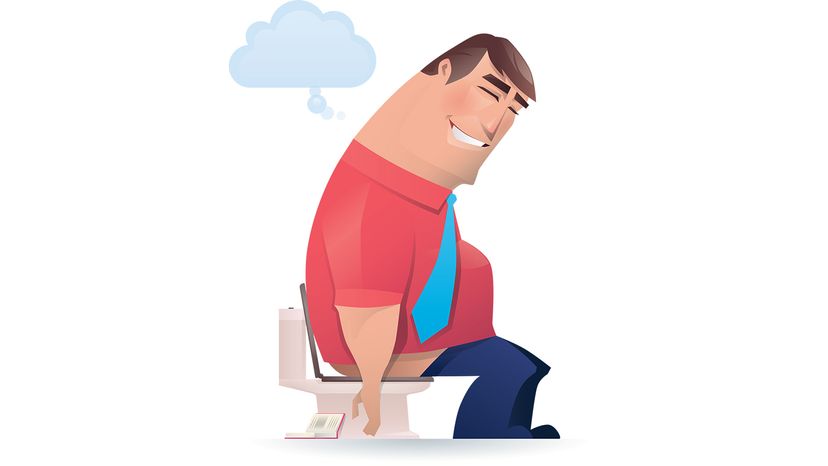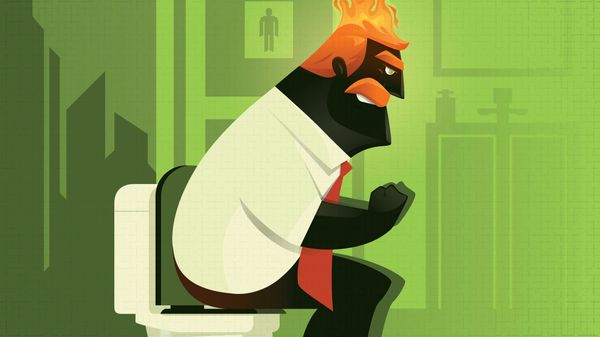
If you've recently had surgery, you've likely been poked and prodded to the point of total frustration. And now your doctors are forcing you to do what? Unfortunately, while you may just want to get out of the hospital as quickly as humanly possible, your caregivers will likely request that you first prove your body is able to perform normal functions. And yes, those normal functions include the ones that take place in the bathroom.
"Part of the reason they make you poop before you leave the hospital is to make sure your gut has returned to its pre-surgery state," says New York-based nurse practitioner and health coach, Victoria Albina, FNP-c, MPH. "Constipation is a very common side effect of being sick, being in the hospital, and especially after having surgery."
Advertisement
There are a lot of reasons your digestive tract may slow down post-surgery, so it's crucial for your care team to ensure you're on the road to recovery before they let you go home. "Several things can happen during the surgical process that can lead the bowels to slow down," Albina says. "One of them, quite simply, is immobility — the less you're moving, the less signal there is going from your vagus nerve to your body, telling digestion to work."
Another common cause of constipation is the lack of food moving through your system before, during and after surgery. "Most patients are told to be NPO [a Latin phrase that translates to "nothing by mouth"], not to eat or drink anything for a certain amount of time before surgery," Albina says. "And that's because if you do go into some kind of shock or have a problem during surgery and need to intubated to help you breathe, they want to reduce the risk of aspiration, or pulling the stomach contents into the lungs, which is more likely to happen if there's something in the stomach. If nothing goes in, nothing come out — so the bowels can get slowed down when the patient is in a fasted state."
And of course, if you're undergoing almost any sort of surgical procedure, you may experience pain. While there are plenty of medications to help take the edge off, many of them can slow the gut down even more. "Opioids and anaesthesia — painkillers — can also cause constipation," Albina says. These medications not only decrease the amount of movement going on in the intestines, but they may also increase the amount of water that's being absorbed in the GI tract, causing drier stool.
So even if you're mentally ready to leave behind the less-than-comfy hospital bed, always listen to your care team and give your body enough time to heal before you attempt an exit. "The whole point is to make sure your bowels work," Albina says. "The other thing is that they want to make sure you don't have an impaction, or stuck poop in your colon, and they want to make sure you don't have an obstruction — that's a thing that can happen post-operatively. It's rare, but they want to make sure your poop machine works."
Advertisement


